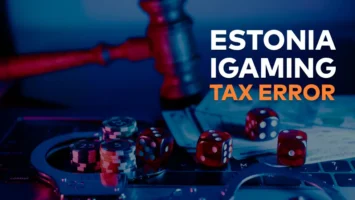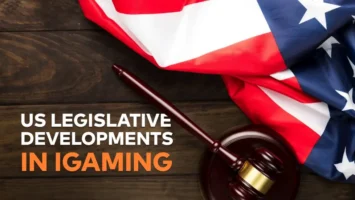Philippines online gambling inquiry

The Philippines online gambling inquiry and initiatives are shaping up to be a defining chapter in the country’s digital gaming landscape. With legislators, regulators, and industry leaders each vying for influence over the future of iGaming, the nation stands at a crossroads: can it balance economic potential with pressing social concerns, or will mounting criticisms ultimately stifle one of Southeast Asia’s most vibrant digital sectors?
The spark behind the current inquiry
Pressure has been mounting in the Philippines around the rapid proliferation of online gambling platforms. The Senate recently announced its intent to probe the impacts of iGaming more deeply, with Senator Erwin Tulfo, chair of the Committee on Games and Amusement, calling the situation a “crisis.” Highlighting addiction and access issues, Tulfo and several colleagues have questioned whether the sector’s economic contributions outweigh its social consequences. The urgency is compounded by cases where minors and vulnerable individuals have been drawn into gambling—a scenario no regulator or responsible operator wants to see.
Calls for a total ban vs. regulatory reform
There is stark division among lawmakers. A faction of senators, including Risa Hontiveros and Juan Miguel Zubiri, support a sweeping ban on online gambling. Hontiveros has advanced a bill targeting the use of digital wallets and apps for gambling, highlighting stories of Filipinos falling into debt with just a “single tap.” Meanwhile, President Ferdinand Marcos Jr. has shied away from a knee-jerk ban, instead urging a measured approach that looks at addiction as the root problem, not the platforms themselves.
Marcos has announced a multi-sector conclave to consult with a broad base, from religious groups to mental health professionals and industry players. The aim? To craft evidence-based “guardrails” that protect the public interest while maintaining the sector’s positive contributions.
Regulators shift focus to consumer protections and financial safeguards
Amidst legislative debate, the Bangko Sentral ng Pilipinas (BSP) is poised to implement tough new regulations affecting online gambling payments. According to public consultation findings, BSP-supervised banks and e-wallet providers must soon introduce biometric identity checks and daily transaction caps. These controls are designed to make impulsive or excessive betting much more difficult, directly targeting the financial risks that underpin gambling-related harm.
The planned measures include user-enabled self-exclusion, temporary blocks, and spending caps. Such features align with global responsible gaming standards, placing the Philippines on par with jurisdictions that prioritize player protection. FinTech Alliance Philippines has endorsed this shift, noting that real-time monitoring and the classification of high-risk merchants will be essential as the market evolves further.
Industry launches self-regulation efforts with PlaySafe Alliance
Recognizing the mounting scrutiny, 19 licensed iGaming operators have united to form the PlaySafe Alliance of the Philippines. Their stated mission: promote responsible gambling, strengthen compliance, and help authorities stamp out illegal operators. Industry spokesperson Mike Defensor, president of World Platinum Technologies Inc., stressed the sheer scale of the challenge: roughly 70% of the online gambling market is still estimated to be served by unlicensed, untaxed, and unregulated providers.
The PlaySafe Alliance’s agenda includes essential initiatives, such as working closely with PAGCOR for compliance oversight, enhancing age and identity verification to keep minors out, and running education campaigns on the dangers of illegal betting platforms. Perhaps most significantly, the group has pledged to back research, prevention, and treatment programs, including a national helpline to support those affected by problem gambling. These moves are designed not just to address criticisms, but also to signal a willingness for ongoing industry reform.
Government revenue, public trust and economic impact
Beneath the swirl of policy debates is a hard fiscal reality. Online gaming generated PHP114.83 billion (around $2 billion) in the first half of 2025 alone, an 82.7% year-on-year jump. Government agencies, led by PAGCOR, have argued that economic contributions like these are crucial for “nation-building.” Yet this windfall is not without controversy. A recent incident saw the Government Service Insurance System (GSIS) come under fire for investing over PHP1 billion in iGaming firm DigiPlus. Senators claimed this exposed public pension funds to unacceptable risk due to volatile share prices, sparking a broader debate about where public money should be allocated.
In response, GSIS pledged full cooperation with ongoing investigations and committed to reviewing its policies. It is a clear indicator that, as the market expands, standards around transparency and sectoral risk will only grow stricter.
Curbing gambling advertisements and bolstering standards
As a further step, PAGCOR has partnered with the Ad Standards Council to pre-screen gambling advertisements, enforcing an immediate ban on their display in public and during prime-time television slots. The regulator’s rationale is straightforward: advertising must be responsible and not target vulnerable groups.
Future governance for the PlaySafe Alliance will involve not only elected officers among operators, but also an independent advisory panel of local and international experts. Their remit: keep player protection, public health, and consumer advocacy at the center of market growth.
Taxation talks and the future of regulation
On the fiscal side, the Department of Finance is evaluating whether to hike online gambling tax rates and bar government officials from betting online. Finance Secretary Ralph Recto hinted at possibly increasing PAGCOR’s share of iGaming proceeds from 30% to 35% as a near-term move, while a broader tax amnesty for delinquent payers could also shore up government finances.
Calls for comprehensive, risk-based regulation echo across stakeholders. The message is consistent: blanket prohibitions could inadvertently fuel a larger black market, while thoughtful, data-driven rules can minimize harm without sacrificing legitimate economic value.
The road ahead for Philippine iGaming
The direction the Philippines online gambling inquiry and initiatives take will reverberate throughout the digital economy. Industry leaders are signaling unprecedented willingness to self-regulate and partner with authorities. Financial regulators are ushering in a new era of transactional accountability, while lawmakers and President Marcos push for pragmatic rather than absolutist policy responses.
If this delicate balance holds, the Philippines could serve as a blueprint for emerging iGaming markets worldwide, a place where growth, accountability, and consumer well-being coexist. The next several months will prove crucial as consultations, policy tweaks, and new alliances reshape the national conversation on online gambling, for both industry insiders and everyday Filipinos alike.





















